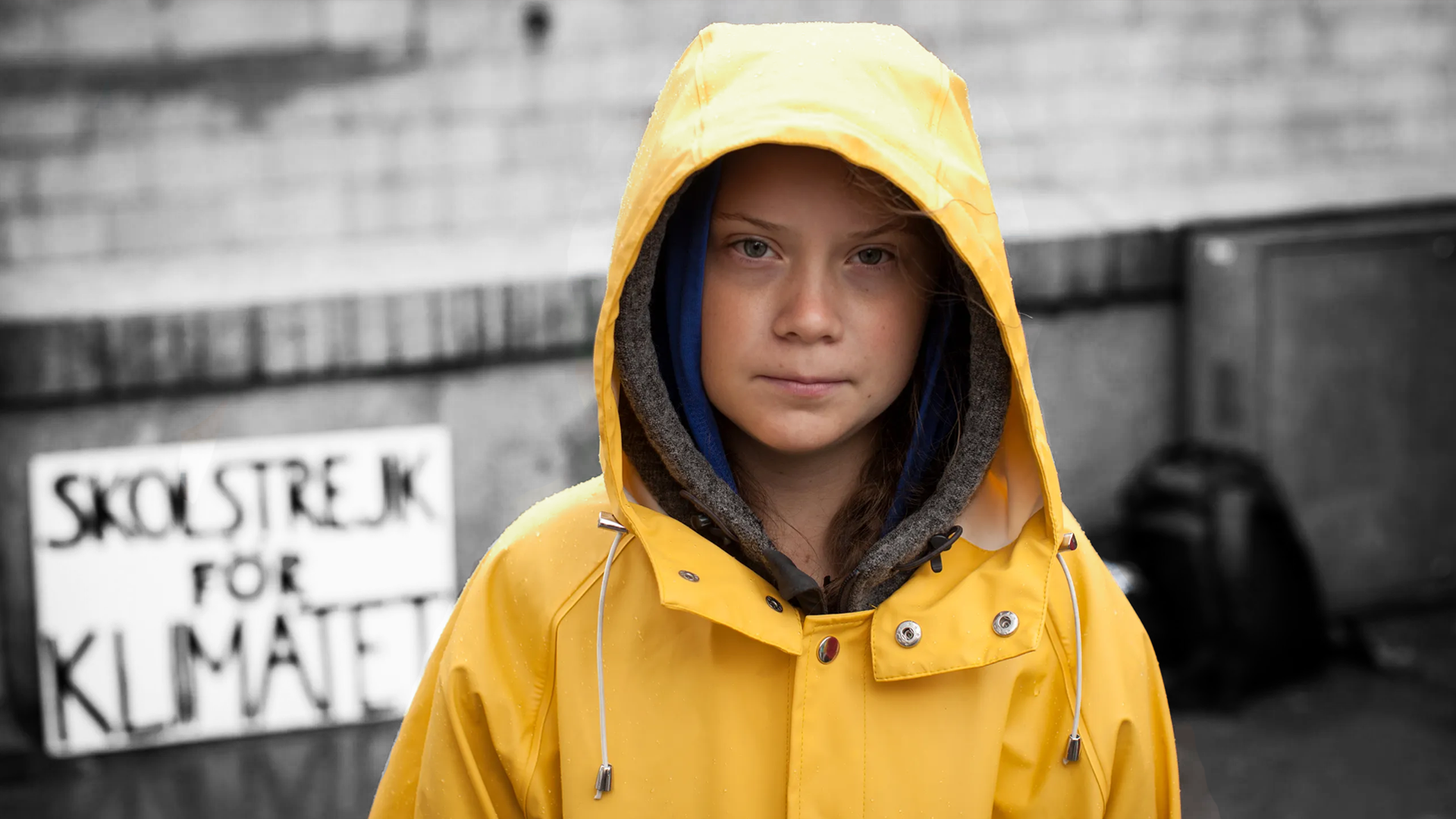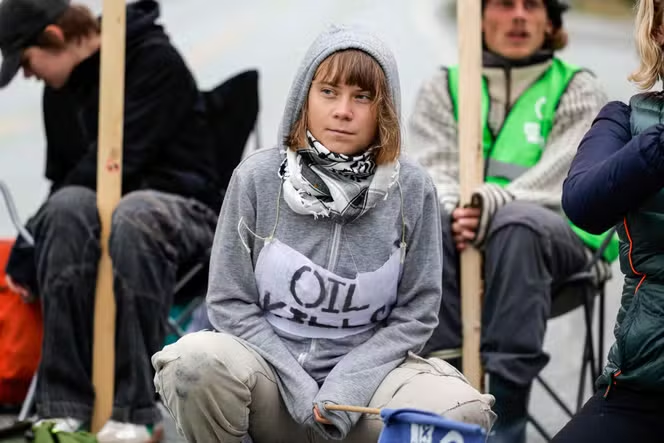Greta Thunberg

Biography
Greta Thunberg was born in 2003 in Stockholm, Sweden. As a child, she learned about climate change and was shaken by the idea that adults were doing so little to address such a massive crisis. By age 11, the weight of this knowledge left her struggling with depression and selective mutism, as she wrestled with the fear that her future was being stolen in plain sight. Greta also lives with Asperger’s syndrome, a form of autism that affects how people process social interactions. Instead of seeing it as a limitation, she has described it as her 'superpower,' giving her the ability to cut through distractions, focus intensely on the science, and speak truth with clarity when others might soften their words.
In August 2018, at just 15 years old, Greta began a lone protest outside the Swedish Parliament with a hand-painted sign that read 'Skolstrejk för klimatet' (School Strike for Climate). Every Friday she skipped school to demand that her government honor its commitments under the Paris Agreement. At first, she sat alone. But her quiet determination soon drew the world’s attention, and a movement began to grow.
What started with one teenager on the steps of Parliament turned into a worldwide wave of activism. Greta’s strike inspired millions of students across continents to join in weekly demonstrations known as Fridays for Future. From Europe to Africa, the Americas to Asia, young people walked out of their classrooms to demand climate justice and hold leaders accountable.
In 2019, Greta delivered one of the most powerful speeches of the century at the United Nations Climate Action Summit. With her now-famous words, "How dare you," she accused world leaders of failing to act while her generation paid the price. Her blunt, evidence-based message resonated far beyond the UN floor, challenging politicians, corporations, and citizens to face the urgency of the climate crisis.
Greta doesn’t just talk about change, she lives it. Refusing to fly because of carbon emissions, she crossed the Atlantic Ocean on a zero-emission sailboat to attend conferences in North America. For two weeks she braved rough seas and seasickness, proving that sacrifice and principle can go hand in hand.
Her courage has come with a cost. Greta has been ridiculed, mocked, and targeted by powerful figures who dismissed her because of her age, her directness, or her condition. Yet she remains steadfast, reminding critics that science is not about opinion, and that the facts will not go away no matter how inconvenient they are.
The impact of Greta’s activism is undeniable. Cities and countries have declared climate emergencies, governments have revised environmental goals, and climate change has become one of the defining issues of this generation. Perhaps most importantly, she has empowered millions of young people to see themselves as agents of change, showing that even the smallest voice can echo around the globe.
Greta Thunberg’s story is not just about climate, it’s about the power of young people to change the world. At 15, she showed that one determined individual can spark millions to rise up. She forced leaders to face uncomfortable truths and gave her generation a voice in decisions that shape their future. Greta’s courage teaches us that you don’t need wealth, power, or age to make an impact—you need conviction, persistence, and the willingness to act when it matters most. In an age where problems feel overwhelming, her message is clear: you are never too small to make a difference.
?
Why did Greta Thunberg’s School Strike for Climate resonate with so many young people worldwide?
How has Greta’s Asperger’s syndrome shaped her approach to activism?
What risks did Greta take by sailing across the Atlantic, and why did she do it?
Why do you think Greta’s blunt speaking style has been both criticized and celebrated?
What lessons from Greta’s activism can be applied to other social and environmental movements?
Dig Deeper
Climate activist Greta Thunberg has inspired a global movement and called out world leaders for inaction and half-measures. Here are some memorable moments of her environmental activism.
Sixteen-year-old climate activist Greta Thunberg explains why she traveled to America in a zero emissions boat and lays out the direct impact climate change has on the planet.
Discover more

Claudette Colvin
Claudette Colvin’s bold defiance of unjust Jim Crow laws came nine months before Rosa Parks’ more widely known protest and was a crucial spark in the fight to end bus segregation.

Malala Yousafzai
Malala Yousafzai stood up to the Taliban at age 11 to defend her right to an education.

Milly Zantow
Long before recycling bins became a normal part of curb‑side life, Milly Zantow invented the numbered triangle system that tells the world which plastics can be recycled.
Further Reading
Stay curious!
